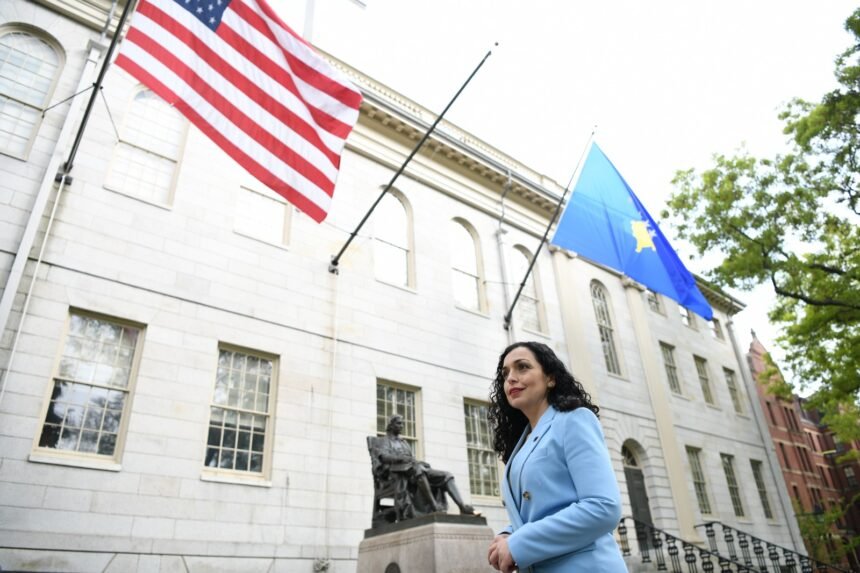The Presidency of Kosovo stated that the U.S. Special Representative for the Western Balkans, Alexander Kasanof, confirmed that none of the previous decisions made by U.S. President Donald Trump “at this time negatively affect Kosovo.”
The media advisor to the President of Kosovo, Vjosa Osmani, Bekim Kupina, informed Radio Free Europe that Kasanof provided this confirmation during a meeting he had in Washington with Osmani’s Chief of Staff, Learta Hollaj.
This statement from the Presidency comes after Trump, on the day he took office, signed an executive order suspending all international aid programs of the United States for 90 days to review whether they align with his political objectives.
On January 21, Radio Free Europe inquired with the U.S. Embassy in Pristina and the U.S. Agency for International Development (USAID) about whether this decision would impact any aid designated for Kosovo, but no response was received.
According to the USAID website, over one billion dollars have been spent on Kosovo’s development since 1999.
Currently, USAID funds a variety of activities in Kosovo, including support for legislative reforms, improving inclusiveness and accountability, addressing corruption challenges, and enhancing trade competitiveness, among others.
Such assistance has continued even during times when the U.S. and the European Union have criticized the Kosovo Government for decisions primarily related to the livelihood of Serbs in northern Kosovo municipalities, such as the removal of the Serbian dinar from circulation, expropriation in northern Kosovo for building police bases, and the closure of parallel institutions functioning under the Serbian system.
Meanwhile, in a press release issued by the Presidency of Kosovo regarding this meeting, Kasanof emphasized the importance of continuing the dialogue between Kosovo and Serbia.
This process, mediated by the European Union and supported by the United States, aims for the full normalization of relations between Kosovo and Serbia.
Earlier, high-ranking American officials stated that they hoped this process would conclude with mutual recognition, which Kosovo is seeking. However, Serbia has requested a compromise, where neither party would be an absolute winner or loser.
According to the statement, Hollaj discussed with Kasanof the strategic dialogue between Kosovo and the U.S., the expectations from this process, and the areas that will be covered by this dialogue.
On January 10, Osmani declared that Kosovo and the U.S. would soon finalize an agreement on a strategic dialogue between the two countries, which, according to her, will cover important areas in the interest of Kosovo’s citizens.
The strategic dialogue between the United States and other countries is a high-level discussion aimed at deepening partnerships.
The U.S. leads strategic dialogues with several countries to advance cooperation in various fields.
Countries engaged in strategic dialogue with the U.S. include North Macedonia, Lithuania, the United Kingdom, Romania, Austria, Poland, Slovenia, Moldova, Greece, Liechtenstein, Qatar, Oman, Bahrain, Egypt, among others. /REL/







